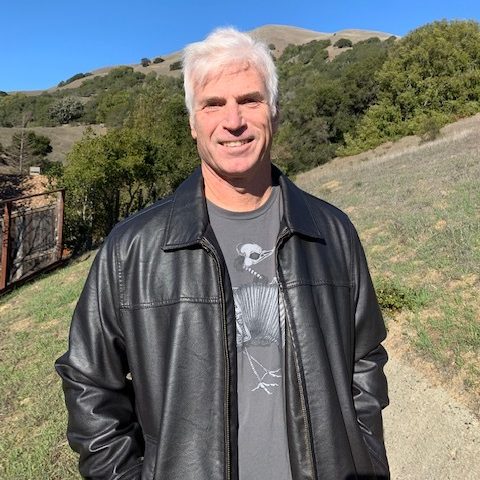Prepare for total control of your economic life. That is the message from Brownstone Fellow Aaron Day at his 4-hour workshop in San Jose, California last Saturday, May 11th.
Day has written the excellent book The Final Countdown, which carefully describes the increasingly aggressive assaults on our freedoms by our government and by the global elites. He has just begun a series of workshops around the country to deliver that message and to show us a way to resist. The book was published just last year, but Day acknowledges during the presentation that he had to make alarming updates to his slides from current news, not even weeks old – more government intrusion, more legislation, and more spurious arrests, all attacking our ability to interact freely and transact our business.
As in the book, the presentation begins with a fictional account of a family set in the near future in a Western democracy, but perhaps all too familiar to current denizens of China, with their controlled currency and social credit scores. The image is easy to dismiss; it could never happen here. And yet, Day goes on to show how it actually is happening here. With a litany of article after article, official statement after statement, and video after video he makes his case. It is happening – he leaves no doubt.
Day gives ample historical reference points as well. How did we get here? It has been a long time coming. The constant push of globalist powers to remove our freedoms and control all resources has been in the works for a century. Perhaps it has never been different; the powerful seek more power, and the levers of technocracy make that easier than ever. The difference now is that the reach is truly global. There has been ever-increasing control over food, water, energy, and even the space we occupy and the air we breathe.
The particular focus of the workshop is on CBDCs in America and throughout the West. Our central bank has been developing digital currency for some time, hoping to eliminate our ability to keep our business to ourselves. In this new world, all our actions can be easily monitored, tracked, and nudged into whatever direction the elites deem right or beneficial to their wealth and status.
Within the two hours of historical facts, somber reflections, and sometimes horrifying news, the audience did not sit quietly and take the emotional beating. On the contrary, there was already much knowledge of these events, grunts of awareness, gasps of disbelief – we all knew it, but perhaps didn’t know it was this bad, with all the detail that Day presented.
Digital currency is in the works, folks, and it is undoubtedly coming, sooner than we all think. One more emergency is all it could take for the government to say we are all doing this now.
The audience was generally older, probably retired, or with a nest egg they were hoping to protect from debasement. A lively bunch, clearly committed to freedom, voiced their questions often in the quickly paced session. Each query exhibited a tacit but palpable urgency from the attentive crowd, who are all fully aware that what Day exposits is not some futuristic dystopian fantasy, but soon to be the new reality as he predicts.
The age of the audience is to be expected, perhaps: with time and money on their hands, they are probably more aware of the unfolding events with a perspective of history and have more wealth to lose. Indeed, many of the questions the audience asked centered around their ability to maintain their legacy when a CBDC replaces the dollar – how do I protect my assets when the currency falls and centralized control follows?
But that is not the point, says Day. The point is not that our money is a store of value; the point is that it is a medium of exchange. It is not the inherent value of gold or crypto that is important, whether it goes up or goes down; its importance is its utility and its freedom from tracking by the State.
Viewing the importance of money through this lens of freedom and impact on the future, we could easily see that those with truly the most to lose were largely not present at the workshop. The young adults – whose lives will be impacted the most gravely should the economic stranglehold ensue – will not make their financial decisions freely according to their own obligations, their own goals, and their own dreams.
Every purchase will ultimately have to pass the test of the State’s agenda: did they use too much gas or too much water? Did they say something against the State? Will it be possible for them to attain the kind of comfort that their parents attained, out of the State’s watchful eye? If Day’s CBDC roadmap to economic tyranny is deployed, he clearly demonstrates what follows, and he proves it by citing recent events.
The second part of the workshop focuses on what can possibly be done to counter this insidious march into economic slavery. Unfortunately, as Day describes, it is not possible to simply pack up and move out. Even with ample wealth and mobility, escape is not possible. Day recounts the stories of several colleagues who tried a different way – many of them arrested for saying too much and being too influential. Live in a different country? Doesn’t matter. We’ll call our people there and have you picked up.
No, the only true way to beat this movement into CBDC tyranny is to stand in the light and refuse to participate. Use other methods to transact your business wherever you can and get others to do likewise. See which businesses will accept payment in crypto, and get yourself a wallet. Giving the waiter a tip? Give her a Goldback.
As Day also makes clear, no one such solution will work; we have to use them all, as the effort to undermine the options is well underway. You may have heard that the largest threat to the dollar, Bitcoin, has been subverted into a system to be controlled by insiders, who are ultimately influenced by the State. Roger Ver’s recent book, Hijacking Bitcoin, tells this story. Tellingly, Ver, a citizen of St. Kitts since 2014, was arrested in Spain at the behest of the US just weeks ago.
Day explains that this is the point of using every way possible to sidestep the use of the dollar. If one method gets too big it becomes compromised by attacks of the State.
The other important takeaway from the workshop is the idea of self-custody. Any crypto account you keep, or any asset anywhere, should be kept under your own custody, where only you have the keys. This is not possible with many cryptocurrencies by their construction, and not possible if you leave custody with a bank. It’s a lot harder for the State to go after millions of anonymous accounts than to go after one central repository that has the keys. Day notes which cryptos do and don’t allow self-custody. If you trade crypto through a large exchange, they too will most likely keep the keys.
I have only touched on the depth and breadth of Aaron Day’s workshop. It is well worth the time to understand the evil before us and practical ways to combat it. We will all need to work together to keep our financial freedom. Get in touch with Aaron via email and ask him to visit your city and present his workshop, or sign up to receive information through his website. Share those valuable lessons with your family and friends, and pay particular attention to the youth. It is their world being taken from them before they even get the chance to call it their own.

Every attendee walked out of the workshop empowered with practical tools for resisting the move to CBDC. We each had a crypto wallet set up on our phone, to which one of Aaron’s sponsors donated $5 in self-custody crypto. We also left with a New Hampshire Goldback, currently worth $5, and a Citizens for Sound Money 1/5 oz round of silver worth about $5. As Aaron explained, there is growing acceptance of these forms of payment everywhere. Goldbacks can be used in Utah, Nevada, Wyoming, New Hampshire, and South Dakota. The workshop also included a signed copy of Aaron’s book.
On my drive back home after the workshop I met some friends at a local pub. I tried out my newfound power as I attempted to buy a beer with the Goldback, going through all the waiters all the way up to the owner. He looked the gold foil leaf up and down examining the obvious care and purpose in its making. He scowled. “I don’t think so,” he said.
We have a ways to go in California. I for one will keep trying, and encourage all to join me in the pursuit of economic freedom.
Join the conversation:

Published under a Creative Commons Attribution 4.0 International License
For reprints, please set the canonical link back to the original Brownstone Institute Article and Author.









